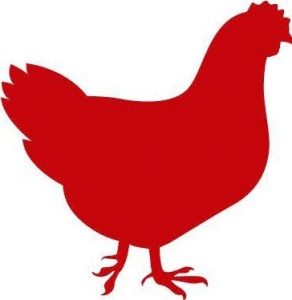
Lifespan of a hen
Hens may live in backyard flocks for 6-8 years, and most flocks will produce eggs for 3-4 years. The level of egg production, egg size, and shell quality decrease each year. Most commercial layers are kept for 2-3 years as their egg production decreases after this time. To keep a small flock producing, owners should plan to retire old hens and add young hens (pullets) every 2-3 years.
When do hens begin to lay eggs?
During ideal day length (14-16 hours of light) and with adequate nutrition, housing, and management, hens (depending on breed) should begin producing eggs when they are18- 22 weeks old.
Do hens lay eggs in the winter?
The hen’s ovulation is stimulated by the length of the day. Maximum egg production is reached during summer days with 16 hours of daylight. Egg production may continue during the spring, fall, and winter when artificial light is supplemented to provide 14 -16 hours of light. Using a timer and a 60-watt incandescent bulb, add light to the morning and late afternoon but allow hens to naturally roost in the evenings with the setting sun.
 Are eggs laid every day?
Are eggs laid every day?
Ovulation (release of the yolk from the ovary) occurs every 24 – 26 hours regardless of fertilization (so a rooster is not needed). A hen ovulates a new yolk after the previous egg was laid. It takes 26 hours for an egg to fully form (white and shell added), so a hen will lay an egg later and later each day. Eventually the hen will lay too late in a day for ovulation to be signaled. She will then skip a day or more before laying another egg.
Can laying hens be harvested for meat?
You may butcher laying hens for home consumption, but as their genetics are for egg production, their meat is tough and there is not as much of it compared to a meat-type chicken. Stewing laying hen meat makes it more edible, as does using it in soups. Laying hens may have a fair amount of fat that may need to be skimmed from the dish being prepared.







